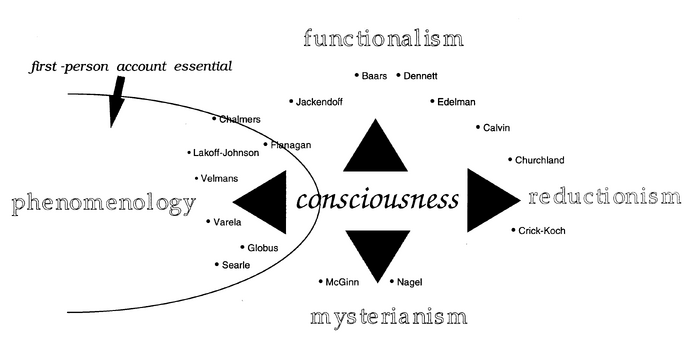So there is a correlation.
But as far as causation, what do you do with dreams?
I sleep with my head covered with pillows, sheets and covers. Not too many photons hitting my retina. Yet on many occasions I have amazing full reality and some weird full-color "shows" with people and places, animals and things like trucks and aircraft that sometimes include even aural and tactile sensations. Sometimes I am in situations that require a moral choice. So, surely the dream-state is in some real way one aspect of a person's consciousness that does not depend on sensory inputs from eyes, ears or tactile senses, and if so that seems, logically, to make it harder to argue in that direction.
Good one. That's why I always like your questions Gulstein ( Is that like Gull-steen" Or is it like Gull-stine, like rhymes with shine? Or is it like "Gool-Steen or Stein?
I suppose we might say the same thing for sensory deprivation tanks. Here's one article:
From what I've read in the past, the same portions of the brain that are activated during the conscious experience of eyesight are also active during dream states, and can be measured with EM sensors. So the irresistible conclusion is that once again, measurable brain activity is directly
related to the conscious experience. When such correlations are consistent in every single case, the weight for causality increases. With neuroscience, the correlations are so consistent ( virtually 100% ) that there's no reasonable claim to be made that the brain isn't causal.
That being said, exactly how the the mechanisms within the brain are engaged to produce dreams, is beyond my knowledge. However from what I've been able to gather, it has to do with a series of structures called the thalamocortical loop, and activation happens as a natural part of the biochemistry that takes place when we go to sleep.
None of this explains the
existence of the dream experience in the first place ( The Hard Problem of Consciousness ), but nothing explains the fundamental
existence of
anything else either, which is why I keep saying the HPC isn't a valid "problem" in the sense that it can be "solved". I often refer back to a statement
@smcder made a long time ago, which is that it's more like a koan:
? A good video here:
?
Not referring to anyone here specifically, it seems many others have either not attained this understanding, or have rejected it out of hand ( without providing adequate counterpoint to invalidate it ). In some cases they have reformulated the HPC to suit their own explanations. Maybe this might pass with some philosophers. I don't know. We've been trying to get David Chalmers on as a guest for about a year, but he's been busy finishing his latest book.
 markpharoah.net
pw: 3musketeers
markpharoah.net
pw: 3musketeers markpharoah.net
markpharoah.net





